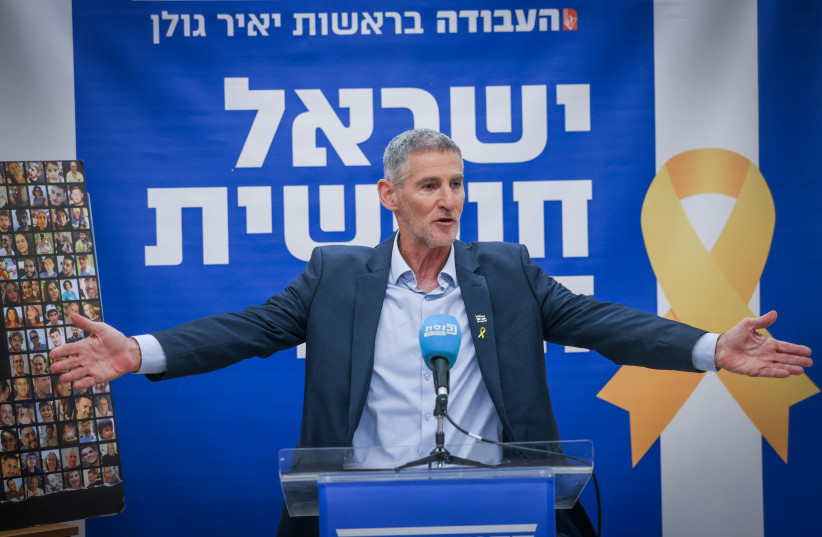The IDF announced on June 3 that it had confirmed the deaths of four Israeli hostages in Hamas captivity, based on new intelligence information, but would thoroughly investigate their deaths: Chaim Peri, 80; Amiram Cooper, 84; Yoram Metzger, 80; and Nadav Popplewell, 51. A day earlier, the IDF said that Dolev Yehud, 35, who was initially believed to have been taken hostage by Hamas on October 7, was declared dead after his body was identified by new scientific tests in Israel. Dolev, a volunteer medic, left his home at Kibbutz Nir Oz on October 7 to save others amid the Hamas onslaught before he himself was killed.
As IDF soldiers completed an operation in the Jabalya refugee camp in the Gaza Strip at the end of May, the military announced that two more soldiers had been killed in intense fighting, bringing the army’s death toll in the ground campaign to 300. The fallen soldiers were named as Sgt. First Class (res.) Adar Gavriel, 24, from Caesarea, who was killed in Jabalya; and Sgt. Yehonatan Elias, 20, from Jerusalem, who was killed in combat in Rafah, where the IDF said it was engaged in an “intelligence-based” offensive against the Hamas terror group’s last major stronghold. On June 6, the IDF said Sgt.-Maj. Zeed Mazarib, 34, a military tracker, fell in battle in the southern Gaza Strip.
On May 31, US President Joe Biden unveiled what was termed an Israeli offer of a new hostage deal that calls for a six-week ceasefire during which the remaining hostages held by Hamas would be released in three phases, in exchange for hundreds of Palestinian prisoners. “It’s a road map to an enduring ceasefire and the release of all hostages,” Biden told reporters at the White House. The Prime Minister’s Office in Jerusalem issued a statement saying: “The government of Israel is united in its desire to return the hostages as soon as possible and is working to achieve this goal.” However, Finance Minister Bezalel Smotrich and National Security Minister Itamar Ben-Gvir threatened to leave the government if it approved any such deal before destroying Hamas.
Staff Sgt. (res.) Refael Kauders, 39, was killed and 10 people were wounded in a Hezbollah assault with explosive-laden drones on northern Israel on June 5. The IDF said it was investigating why sirens had not sounded when at least two drones crashed into the Druze town of Hurfeish, near the Lebanese border. Hezbollah said the drones were a response to recent IDF strikes in southern Lebanon, including one in Naqoura that killed a Hezbollah member. Following the attack, the IDF conducted new strikes against a series of Hezbollah targets in southern Lebanon.
Yair Golan, a former deputy chief of staff who pledged to unify Israeli Left-wing parties into a single bloc, won the Labor party leadership primary on May 28 with 95.15% of the vote. Some 31,353 Labor members – 60.6% of those eligible – voted in the primary to replace outgoing chairwoman Merav Michaeli, who congratulated Golan, tweeting: “Good luck to Yair and the party.” In an address following his victory, Golan said: “We have to unite everyone – Labor, Meretz, the protest organizations, [and] those disappointed by other parties.”
David Levy, a former foreign minister and prominent voice for Mizrahi and working-class Jews, died on June 2 at age 86. Levy, a member of Knesset for 37 years for the Likud, Labor, and Gesher, served as deputy prime minster, housing and construction minister, and aliyah minister in three governments. Born in Morocco, Levy made aliyah with his family in 1957 and began his public career as a leader of the working class in Beit She’an, and worked his way up from municipal to national politics. Awarded the Israel Prize for Lifetime Achievement in 2018, Levy is survived by his wife, 12 children, and dozens of grandchildren.

